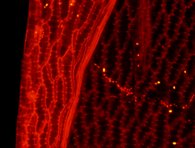Microbial symbionts associated with bryophytes of Arctic peatlands and their relevance for the carbon and nitrogen cycle
Funding:„Impuls- und Vernetzungsfonds“ of the Helmholtz Association University of Tromsø
Status: current (2013 - 2018)
Cooperations:
Prof. Dr. Mette Marianne Svenning, Institute of Arctic and Marine Biology, Arctic University of Norway, Tromsø
Dr. Alexander Tøsdal Tveit, Institute of Arctic and Marine Biology, Arctic University of Norway, Tromsø
Dr. Christian Knoblauch, Institute for soile science, Universität Hamburg
Natural peatlands, which are some of the earth’s most important carbon sinks and water reservoirs, are under threat today. In the northern latitudes this is due mainly to nitrogen inputs and rising temperatures; in temperate zones it is due mainly to drainage and conversion for agricultural use. The Helmholtz International Research Group ArcBiont – a cooperation between the German Research Center for Geosciences (GFZ) and the Arctic University of Norway –conducts research on various types of peatlands, including brown moss and Sphagnum peatlands in the high Arctic, Arctic and sub-Arctic as well as in Müritz National Park, a central research area within TERENO’s Northeastern German Lowland observatory. Based on molecular techniques such as high-throughput sequencing and statistics ArcBiont specifically looks at the biogeography of moss associated microbial communities and on their function along the succession of natural peatland.



